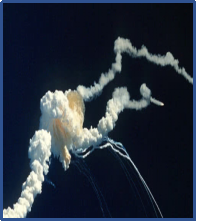 Unit 4 Space Exploration
Unit 4 Space Exploration
Reading and Thinking
【教学目标】
1. Read quickly to get detailed information according the timeline; read carefully to summarize the main idea.
2. Learn the reading skills—finding the timeline and summarizing the main idea by finding the words or ideas.
3. Have a passion for our country and be proud of the space exploration.
4. Learn to think critically about the space exploration.
【教学重难点】
1. Read quickly to get detailed information according the timeline; read carefully to summarize the main idea.
2. Learn the reading skills—finding the timeline and summarizing the main idea by finding the words or ideas.
【教学过程】
Step 1 Lead in—Small talk
Watch a video about Space experiment and discuss what you have learnt from it.
Step 2 Before reading—Predict the content
Space: the final frontier



Chinese meaning: 太空:最后的边境
Frontier: the border, which might mean the human’s recognition edge or exploration edge.
From the title and the pictures and the title, we can know that the article might be about the development of space exploration. It broadens us human’s recognition edge or exploration edge. So it is an exposition.
Step 3 While reading—Task 1
1. Read the text. Several sentences have been removed from it. Choose the correct sentences A—D to fill each gap in the text.

A. Although scientists try to make sure nothing goes wrong, accidents can still happen.
B. They also really wish to discover other planets that are suitable enough to support life.
C. The future of space exploration remains bright.
D. After many experiments, they succeeded in making rockets that could escape Earth’s gravity.
Answers: BDAC
2. Scan the text and match the main idea.
Para 1 A.China has made great progress in exploring space.
Para 2 B.The future of space exploration remains bright.
Para 3 C.The achievements that the USSR and America made.
Para 4 D.People have always wanted to explore space.
Para 5 E.The desire of people to explore the universe never died.
Answers: DCEAB
3. The main idea of the passage is the space exploration of humankind.
Step 4 While reading—Task 2
Read the text and fill in the table
time |
events |
On 4 October 1957 |
The Sputnik 1 satellite was 1.launched by the USSR and successfully 2.orbited around Earth. |
On 12 April 1961 |
Yuri Gagarin became the first person in the world 3.to go (go) into space. |
On 20 July 4.1969 |
Armstrong stepped onto the moon,saying,“That's one small step for a man,one giant 5.leap for mankind.” |
On 5 September 1977 |
America launched Voyager 1 to study 6.deep space,and it still 7.transmits data today. |
In 8.2003 |
China became the third country in the world to 9.independently send humans into space and Yang Liwei successfully orbited Earth in the Shenzhou 5 spacecraft. |
Step 5 While reading—Task 3
Read the text again and answer the following questions. Then have Ss share their answers.
Q1: Who was the first person in the world to go into the space?
Q2: Who was the first man to orbit Earth in Shenzhou 5 spacecraft?
Q3: In which satellites all the astronauts died during their missions?
Q4: What is the function of the International exploration?
Q5: What can you learn from Para 4?
Q6: What is the attitude to the space exploration?
Step 6 Post reading
1. Retell
Have some Ss try to retell the text.
2. Critical thinking
Q1: What do you think of the space exploration?
I think it is beneficial to us. Through further study of space, people will make full use of it in the future, such as the space experiments by Wang Yaping in Tian Gong 1.
Q2: If you are determined to be an astronaut, what should you prepare at present?
First of all, I should study hard to get a related college degree. Besides, I must keep mental and physical healthy.
Step 7. Homework
Try to summarize the structure of the article by a mind map.

